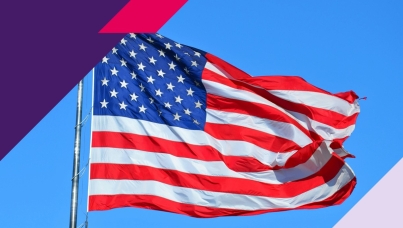Most Americans report higher electricity, gas bills compared to a year ago
Washington, D.C., April 23, 2025—A new PowerLines poll, conducted by Ipsos, finds that three in five Americans say their electricity and/or gas bill has increased compared to a year ago, while slightly more are concerned that these bills will increase this year. Most Americans also say they feel powerless to control how much they are charged for electricity and gas services and admit they do not fully understand what drives the costs from their local utilities. Moreover, most disagree that their state government does a good job at protecting their interested when it comes to regulating local electrical or gas utilities.
Detailed findings:
1. A majority of Americans say their electricity and/or gas bill has increased compared to a year ago (62%) and are concerned that these bills will increase this year (73%).
- One in three (33%) that say that their electricity/gas bills stayed the same compared to a year ago. Just 3% that say these bills decreased.
- Those in households that make under $50k a year (81%), those living in the West (77%), and Hispanic respondents (78%) are the most concerned about increasing electricity and gas bills.
- Nearly half say that increasing electricity and gas bills are a bad sign for the economy (47%). Half also say that these increasing bills are neither a good nor bad sign for the economy (50%); just 1% say it is a good sign.
2. Fewer than half of Americans (42%) and bill payers (43%) say they fully understand what drives the costs they are charged by local electric or gas utilities.
- Americans age 18-34 (60%), 35-49 (58%), 50-64 (58%) are more likely to say they don’t fully understand what drives these costs compared to those ages 65+ (47%).
- When asked what type of electricity or gas utility company services their home, one in three (33%) say they don’t know. Black Americans (46%), those with a high school degree or less (43%), and Americans age 18-34 (43%) are the most likely not to know.
- While most say they are familiar with their local power or gas utilities (69%), fewer are familiar with state regulatory agencies that oversee these utilities (39%) or how local utilities source their power (47%).
3. Less than half say their state government does a good job protecting their interests when it comes to regulating our local electrical or gas utilities (38% agree, 59% disagree).
- There are no significant differences across political party. Older Americans are more likely to say their state government does a good job (47%), compared to 35% among those ages 18-34.
- Four in five say they feel like they are powerless to control how much they are charged for electricity or gas services (80%). Majorities across all demographics feel this way.
About the Study
This PowerLines Utility Bill study was conducted between March 28-30, 2025,by Ipsos using the probability-based KnowledgePanel®. This poll is based on a nationally representative probability sample of 2,036 adults age 18 or older. The sample includes 1,944 respondents who are partially or fully responsible for paying the electricity and gas utility bills in their household each month.
The margin of sampling error for this study is plus or minus 2.3 percentage points at the 95% confidence level for results based on the general population sample of adults and plus or minus 2.3 percentage points at the 95% confidence level for results based on the sample of bill payers. The margin of sampling error takes into account the design effect, which was 1.08.
In our reporting of the findings, percentage points are rounded off to the nearest whole number. As a result, percentages in a given table column may total slightly higher or lower than 100%. In questions that permit multiple responses, columns may total substantially more than 100%, depending on the number of different responses offered by each respondent.
The survey was conducted using KnowledgePanel, the largest and most well-established online probability-based panel that is representative of the adult US population. Our recruitment process employs a scientifically developed addressed-based sampling methodology using the latest Delivery Sequence File of the USPS – a database with full coverage of all delivery points in the US. Households invited to join the panel are randomly selected from all available households in the U.S. Persons in the sampled households are invited to join and participate in the panel. Those selected who do not already have internet access are provided a tablet and internet connection at no cost to the panel member. Those who join the panel and who are selected to participate in a survey are sent a unique password-protected log-in used to complete surveys online. As a result of our recruitment and sampling methodologies, samples from KnowledgePanel cover all households regardless of their phone or internet status and findings can be reported with a margin of sampling error and projected to the general population.
Weighting
General Population. The design weights for qualified general population respondents were computed to reflect their selection probabilities. They were raked to the below geodemographic distributions of the 18 and over US population. The demographic benchmarks came from the 2024 March Supplement of the Current Population Survey (CPS) and Party ID benchmarks were based on Pew’s 2024 National Public Opinion Reference survey (NPORS).
- Gender (Male and Female) by Age (18-29, 30-44, 45-59, 60+)
- Race-Ethnicity (White/Non-Hispanic, Black/Non-Hispanic, Other/Non-Hispanic, Hispanic, 2+ Races/Non-Hispanic)
- Census Region (Northeast, Midwest, South, West) by Metropolitan Status (Metro, Non-Metro)
- Education (Less than High School, High School, Some College, Bachelor or higher)
- Household Income (under $25K, $25K-$49,999, $50K-$74,999, $75K-$99,999, $100K-$149,999, $150K and over)
- Party ID (Republican, Lean Republican, No lean/Skipped, Lean Democrat, Democrat)
For more information on this report, please contact:
Mallory Newall
Vice President, US
Public Affairs
+1 202 374-2613
[email protected]
About Ipsos
Ipsos is one of the largest market research and polling companies globally, operating in 90 markets and employing over 18,000 people.
Our passionately curious research professionals, analysts and scientists have built unique multi-specialist capabilities that provide true understanding and powerful insights into the actions, opinions and motivations of citizens, consumers, patients, customers or employees. Our 75 solutions are based on primary data from our surveys, social media monitoring, and qualitative or observational techniques.
Our tagline "Game Changers" sums up our ambition to help our 5,000 customers move confidently through a rapidly changing world.
Founded in France in 1975, Ipsos has been listed on the Euronext Paris since July 1, 1999. The company is part of the SBF 120 and Mid-60 indices and is eligible for the Deferred Settlement Service (SRD).
ISIN code FR0000073298, Reuters ISOS.PA, Bloomberg IPS:FP www.ipsos.com



